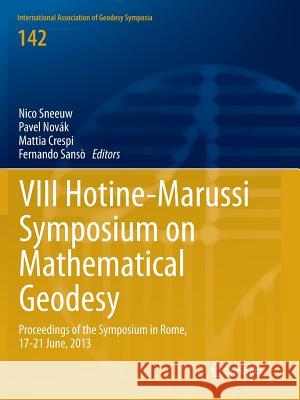VIII Hotine-Marussi Symposium on Mathematical Geodesy: Proceedings of the Symposium in Rome, 17-21 June, 2013 » książka



VIII Hotine-Marussi Symposium on Mathematical Geodesy: Proceedings of the Symposium in Rome, 17-21 June, 2013
ISBN-13: 9783030104092 / Angielski / Miękka / 2018 / 340 str.
VIII Hotine-Marussi Symposium on Mathematical Geodesy: Proceedings of the Symposium in Rome, 17-21 June, 2013
ISBN-13: 9783030104092 / Angielski / Miękka / 2018 / 340 str.
(netto: 575,06 VAT: 5%)
Najniższa cena z 30 dni: 578,30
ok. 16-18 dni roboczych.
Darmowa dostawa!
Proceedings of the Symposium in Rome, 17-21 June, 2013
This volume contains the proceedings of the VIII Hotine-Marussi Symposium on Mathematical Geodesy, which was held June 17 to 21, 2013, in Rome, Italy. Since 2006 the series of Hotine-Marussi Symposia is under the responsibility of the InterCommission Committee on Theory (ICCT), a cross-commission entity within the International Association of Geodesy (IAG). The overall goal of the Hotine-Marussi Symposia has always been the advancement of theoretical geodesy. The 39 papers in these proceedings areindeed testimony to the width and vibrancy of theoretical geodesy.
The Symposium was organized in 8 topical sessions reflecting all branches of geodesy: from geodetic data analysis through potential field modeling to estimation theory. Also theoretical aspects of reference frames and of novel sensors were covered. During a special session at the AccademiaNazionaledeiLinceiFernando Sansò was put into the spotlight in order to acknowledge his long-term commitment and dedication as the driving force behind the series of Hotine-Marussi Symposia over the past decades.
1997-2026 DolnySlask.com Agencja Internetowa
KrainaKsiazek.PL - Księgarnia Internetowa









